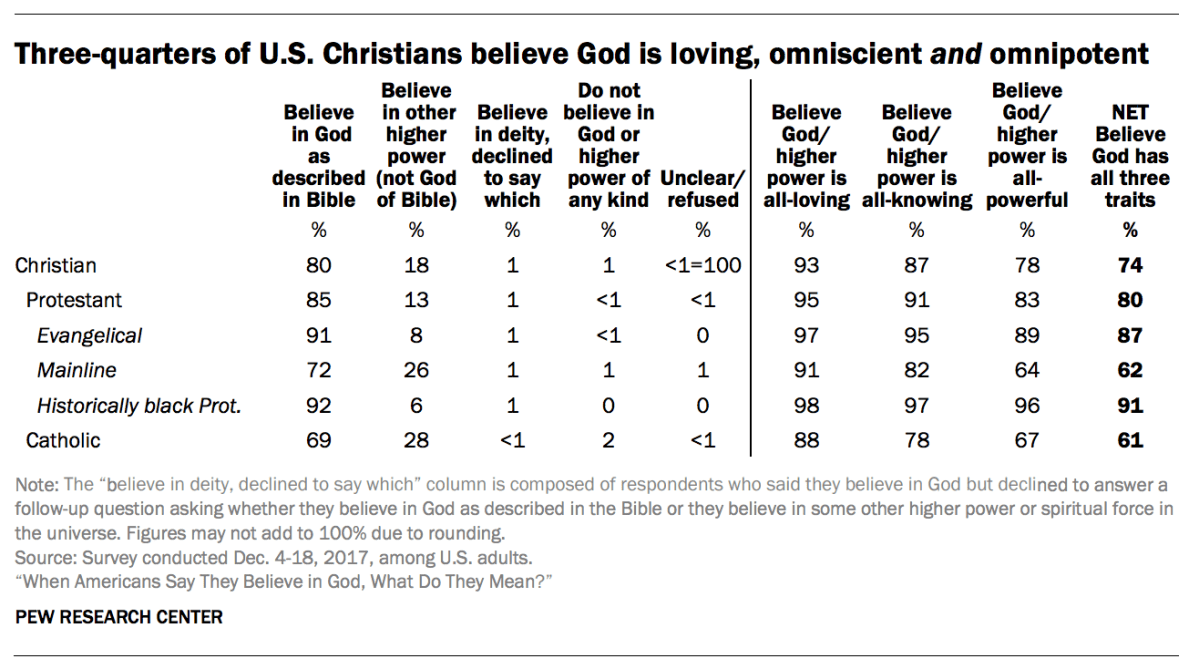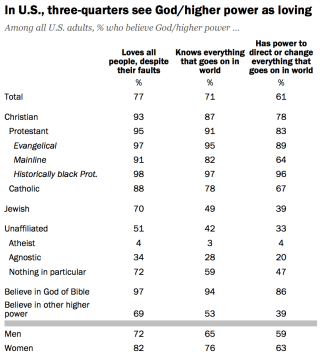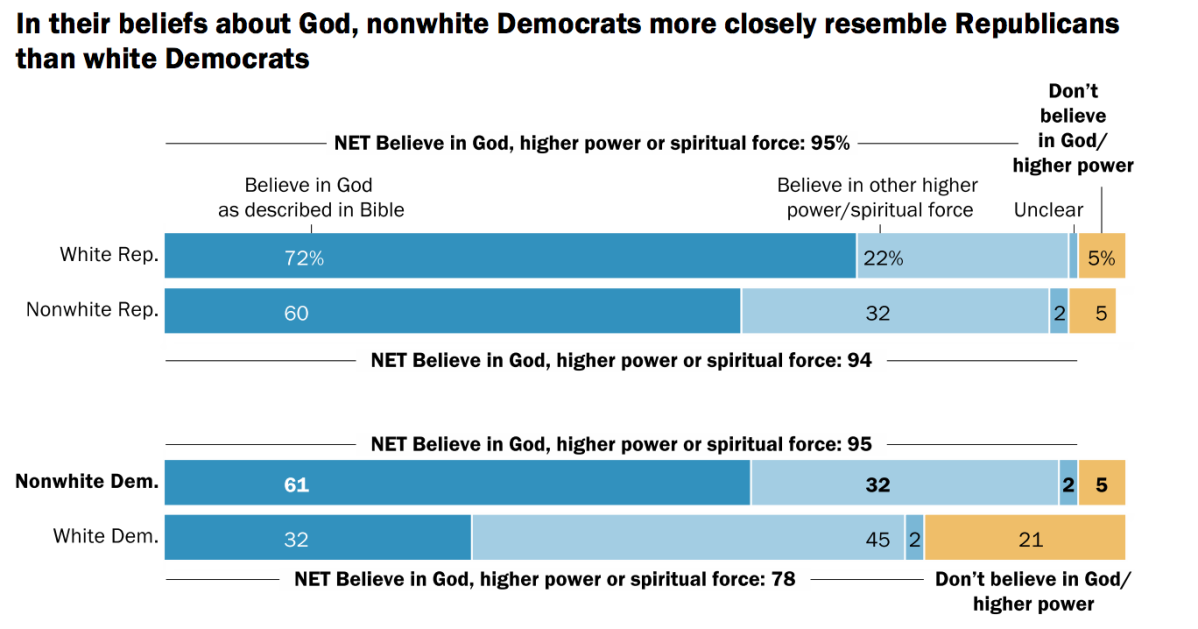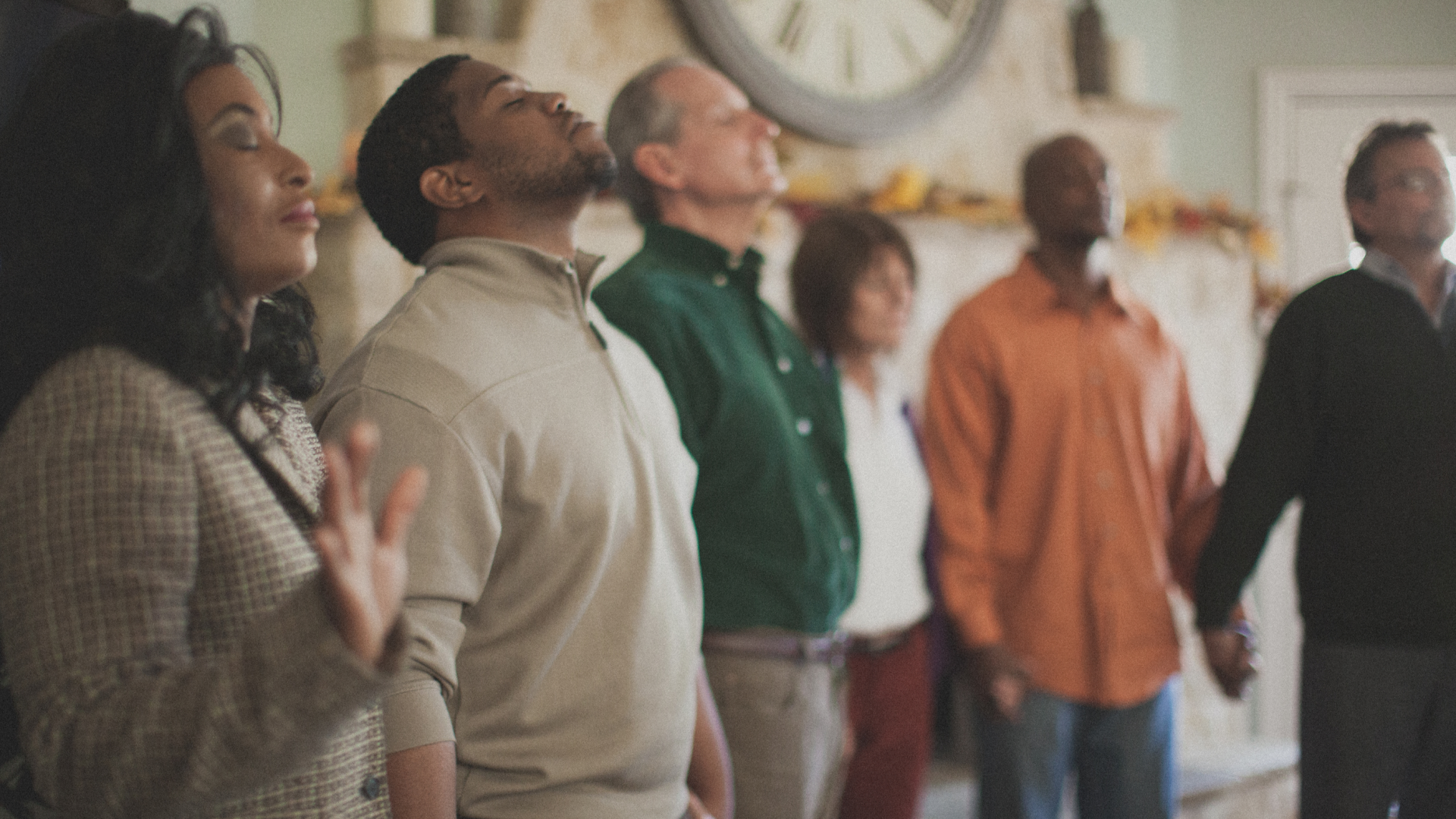“We believe in God,” Amy Grant famously sang in the ’90s. Today, 4 out of 5 Americans still say the same.
But according to a new survey from the Pew Research Center, what they mean by God varies a lot.
Pastors and theologians often warn Christians against ascribing to a “God of their own making,” knowing that not all who say they believe understand God as described in Scripture or in the traditional creeds of the church.
In the shifting spiritual landscape of the United States, Christians too can no longer assume that their friends and neighbors believe in the God of the Bible, if they believe in God at all.
Though God regularly gets evoked in prayer, platitudes, and phrases like “God bless America” and “in God we trust,” Americans—even within Christianity—have different conceptions of who God is and how he operates. Does God judge? Does God love all? Does God control what happens on Earth?
A Pew survey released today found that how people view God—and how they believe God interacts with them—shifts by religious affiliation, gender, and political party.
Even in an era where more of the nation doesn’t ascribe to a higher power at all (10%) or believes in some sort of higher power or spiritual force (33%), a slim majority of Americans (56%) still believe in God “as described in the Bible,” according to the Pew report.

What Protestants, Catholics, and Jews Believe About God
But even belief in a biblical God can lead to different conclusions.
Take two of the “People of the Book”: Christians and Jews. American Christians (80%) are most likely to believe in a biblical God, a minority position among Jews (33%). A majority of American Jews view God as a higher power or spiritual force instead. Jews are less than half as likely (30%) as Christians (74%) to describe God as all-knowing, all-powerful, and loving all people regardless of their faults.
Within Christianity, nearly all evangelicals (which Pew defined for this study by denominational affiliation, using a multiethnic sample that was 25% non-white) and Protestants attending historically black churches believe in the biblical God, more than any other religious affiliation.

Pew found that 9 out of 10 adherents in these two groups of Christians affirmed God’s love, omniscience, and omnipresence, compared to about 6 out of 10 Catholics and mainline Protestants. They were also more likely to believe God speaks to them directly and to see him intervening in their lives.
But compared to evangelicals, attendees of historically black Protestant churches see God as even more involved in the world. They were slightly more likely than evangelicals to believe in a God who knows everything (97% vs. 91%) and who has the power to control everything that’s going on (96% vs. 89%).

Black Protestants view God as more involved in their lives directly, too, with almost all saying God has protected (98%) and rewarded them (96%). Black Protestants and evangelicals were the only groups where over half of respondents also said they had been punished by God—a minority position among Christians in general.
“Usually African-American Christians think about God’s attributes in highly relational terms,” said Thabiti Anyabwile, pastor of Anacostia River Church and author of Reviving the Black Church.
“His sovereignty becomes, ‘He will do it.’ His power become, ‘He is able.’ And all of that gets expressed as deep dependence upon God who is believed to be both necessary and personally at work in our struggles and hopes,” said Anyabwile, who attributed the black church’s view of God to African Americans’ historic struggles through slavery and segregation. “When all you have is God, his character ceases to be academic and your dependence on him becomes existential.”
What Men and Women Believe About God
Women tend to outpace men on measures of faith such as belief, church attendance, and the role of religion in their life. A higher belief in God is behind those trends. In the Pew survey, 61 percent of American women said they believe in a biblical God—11 percentage points more than men.
The Pew researchers write, “Among demographic groups, more women than men see God at work in all or most of what happens in their lives.” More than 8 in 10 of all American women communicate with God, and three-quarters of them say God orchestrates the big and little aspects of their lives.
“In my experience, women tend toward vulnerability and openness in their love of God and confidence in his love for them,” said Wendy Alsup, author of Is the Bible Good for Women?. “… Women may reject the church, but they will keep their belief about God’s love rather than rejecting both together.”
While there wasn’t much of a gender gap between male and female believers over seeing God as all-powerful, Pew found that women were more likely to view God as loving and all-knowing. Eighty-two percent of women say God “loves all people, despite their faults,” compared to 72 percent of men. And 76 percent of women say God “knows everything that goes in the world,” compared to 65 percent of men.
Jen Wilkin, the women’s Bible teacher and author of None Like Him, a book about God’s attributes, said while many women seek to know more about God, Christian resources often focus on self-discovery instead.
“They train women to ask, ‘Who am I’ of the Bible without first asking, ‘Who is I AM?’ The result is a preponderance of Christian women who believe the Bible is a book about God, but who have been conditioned to read it as a book about themselves,” she said. “As a result, they lack a well-developed vocabulary and understanding about who God is. They view his wrath as being antithetical to his love, his justice as being antithetical to mercy and grace, and so on.”
What Republicans and Democrats Believe About God
Americans who lean toward the Republican Party tend to be more religious than those who lean Democrat, a pattern that also gets reflected in how they think of God. In the survey, those on the GOP side were more likely to believe in a biblical God: 70 percent of Republicans vs. 45 percent of Democrats. Among those who believed, more Republicans viewed God as loving, all-knowing, and all-powerful than Democrats (67% vs. 49%).
Republicans also readily viewed God as a judge. Three-quarters of Republicans, compared to 51 percent of Democrats and 61 percent of Americans overall, agreed that “God will judge all people based on their deeds.”
These findings from Pew relate to earlier trends showing a correlation between conservative political views and a belief in God’s judgment. Sociologists Paul Froese and Christopher Bader, authors of America's Four Gods: What We Say about God—and What That Says about Us, wrote in a 2005 research paper:
There are reasons to expect that more authoritarian and active images of God will be associated with conservative political attitudes. An authoritarian and involved God is one who makes judgments, viewing certain behaviors as indisputably wrong, immoral, and sinful.
To the extent that conservative worldviews tend toward restricting behaviors on moral grounds, those who believe in such a God should lean in a conservative direction. On the other hand, those who believe in a distant and nonjudgmental God, little concerned with human affairs, should allow greater moral latitude in human behavior.
Pew found race to remain a significant factor within the political breakdown, with people of color showing high levels of belief across party lines. African American, Hispanic, and other Democrats of color actually more closely resembled Republicans than their fellow white Democrats.
Non-white Democrats (61%) are about twice as likely as white Democrats (31%) and just as likely as non-white Republicans (60%) to believe in God as described in the Bible.

“There are lots of ways to measure beliefs about God. What is so interesting is that most people say that they believe in ‘God,’ yet we don't know what that word means to them. Therefore, looking at what American think about God can be very revealing,” Froese told CT.
“Images of God appear important to individual lives and social outcomes in myriad ways…. I think they describe something essential about how an individual perceives of morality and her role in society.”













